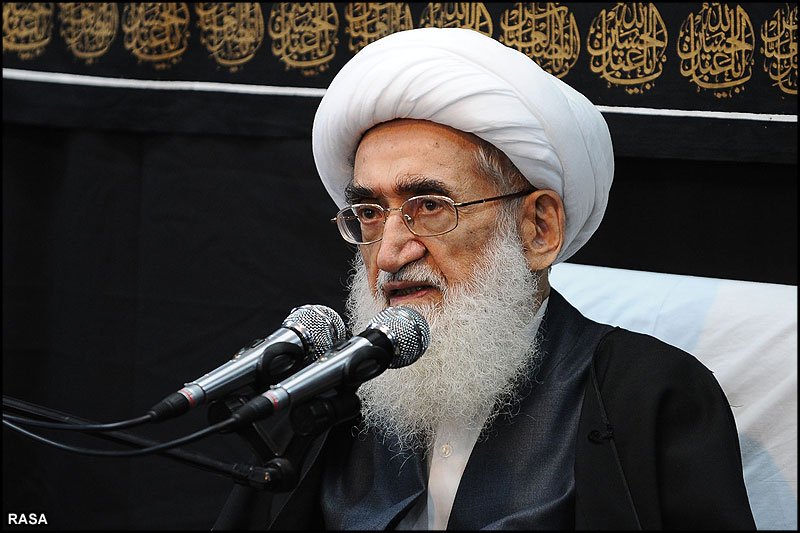
RNA - In his meeting with a group of heads of judicial organizations of the armed forces and military prosecutors from across Iran, Grand Ayatollah Hoseyn Nouri-Hamadani, spoke of the 53rd letter of Imam Ali (A) in Nahj al-Balaghah (The Peak of Eloquence) which the Imam (A) wrote to his companion, Malik al-Ashtar, after he appointed him as the governor of Egypt.
His eminence quoted the letter written by Imam Ali (A) that the collection of taxes is the most important issue that arises in a country because the administration of every country needs to have a budget. The second most important issue is jihad against the enemies. “We must realize that as our power increases, the hostility of the enemies increases,” Ayatollah Nouri-Hamadani explained.
The revered source of emulation added that cultural development and the prosperity of the country are two other important issues in government affairs. He added that the people should strive to be culturally righteous individuals and government officials should assist the people by providing abundant blessings through economic development but must strive to keep prices reasonable and not place the people under economic difficulties and pressures.
He noted that Imam Ali (A) has emphasized this saying: “Every one of the [people] has a right on the ruler according to what is needed for his prosperity.”
Ayatollah Nouri-Hamadani also referred to the social classes mentioned by Imam Ali (A) in his letter, as Imam Ali (A) explained that the seclusion of those in authority from their subjects is a kind of narrow-sightedness and causes ignorance about the peoples’ affairs.
The judiciary is one of the most important and critical duties in the social field and Imam Ali (A) recommended that a ruler should select from among the people he who is the most distinguished of your subjects for the settlement of disputes. The judge should have the best moral character and not be cruel and the cases must not aggravate him towards those whom he is judging.
This distinction, he said, and value must be in all fields – academics, faith, commitment and culture are the sum of the individual. Government work should not place officials under pressure and no one should dare to challenge their rule but the ruler should not be arrogant over this respect and emphasized that a government officials should not be inclined to greed and must always have their eyes on the ends of matters.
Ayatollah Nouri-Hamadani said that scholars and intellectuals have the heaviest duties, and said since the beginning of the Islamic Revolution in Iran, the clergy and community leaders, under the umbrella of the late Imam Khomeini (RA), have always been forerunners in all areas. They felt a sense of duty in all fields and put this into practice.
He added that presently, Iran faces special conditions and the role of the scholars and elites are more sensitive than ever. The enemies of the Islamic Revolution were distressed over the success of the Islamic Revolution and since its victory, they have tried with much effort to prevent the progress of Iran’s great revolution so that other Islamic countries cannot model themselves over the Islamic Republic of Iran
111/112